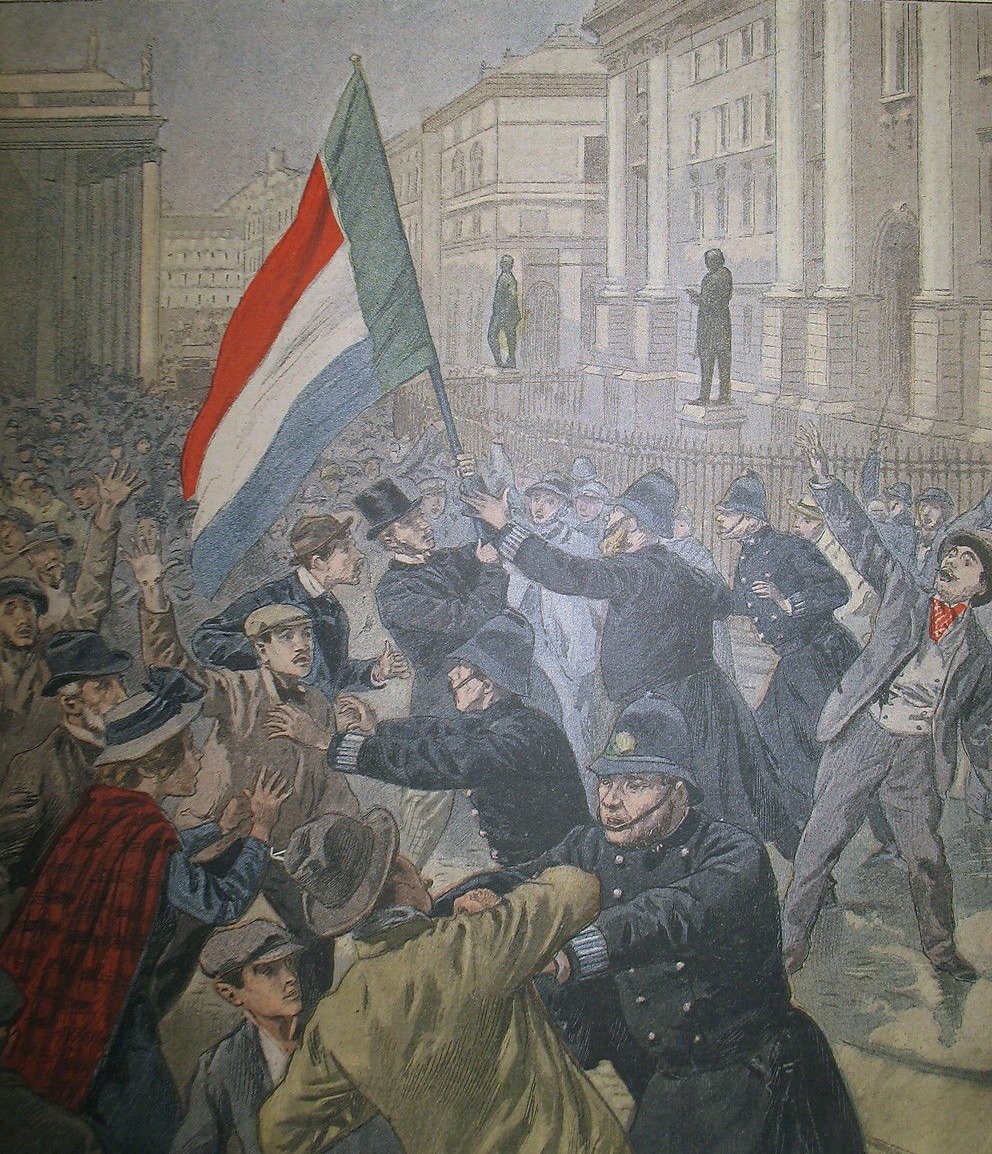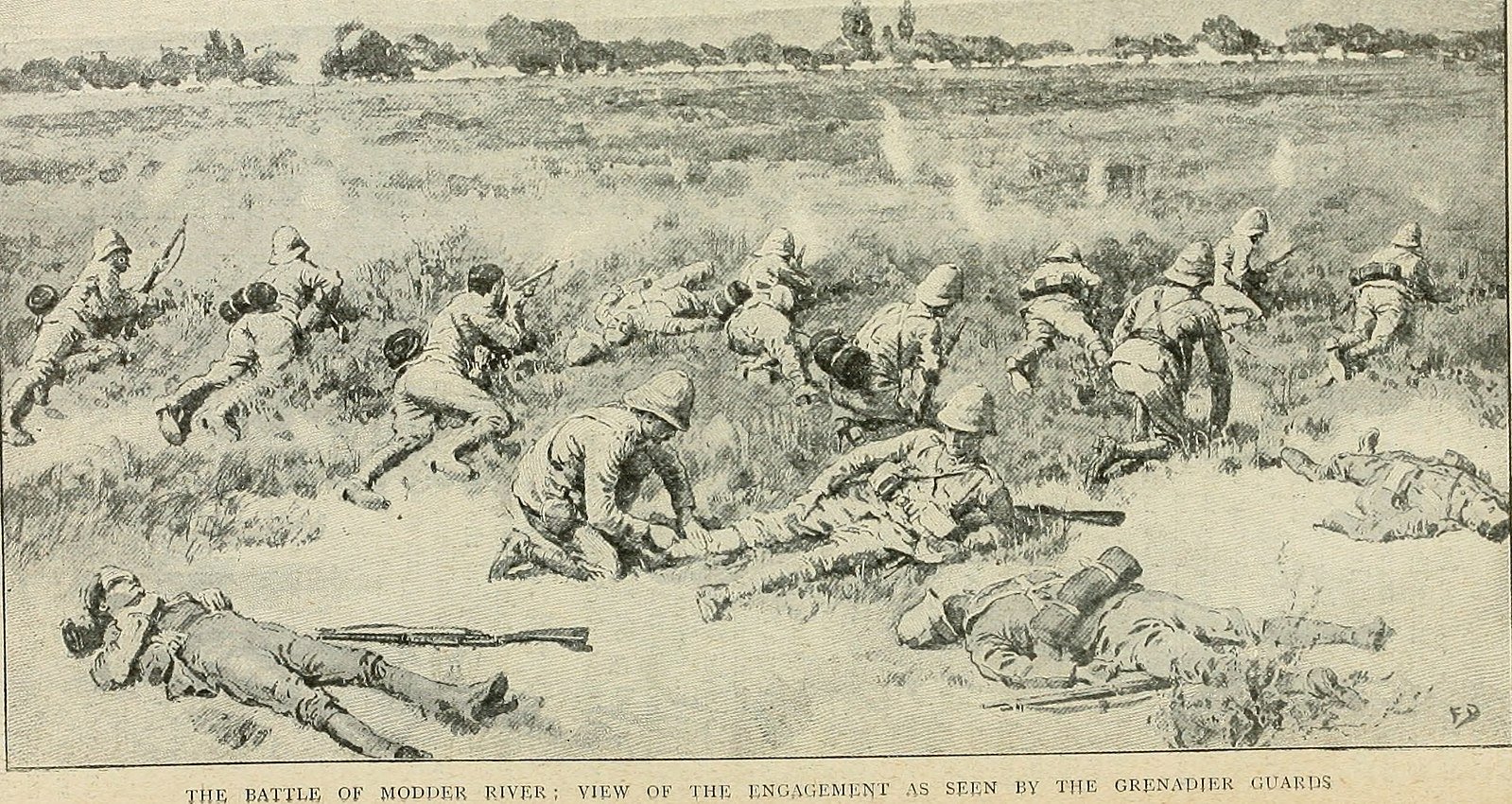Ep. 140 - Up the Boers!
Was Leopold Bloom ever totally radical?
Anti Boer War protesters at the gates of Trinity College, Le Petit Journal
Topics in this episode include Bloom’s memory of a protest, Bloom’s view of the police, the significance of soup imagery, the origins of the Boer War, Irish Nationalist opposition to the Boer War, Joseph Chamberlain, Christiaan de Wet, the irony of Irish Nationalist support for the Boer cause, a French depiction of the protests in Dublin, the class politics of political protest, Sean O’Casey’s daring showdown with a mounter police officer, profiting from the colonization of Africa, poetry as propaganda, a Parnell conspiracy theory, Bloom’s failed attempts to seem more patriotic than he is, the wrong Gough in the park, Bloom’s own profiteering, and the fate of Percy Apjohn.
Support us on Patreon to access episodes early, bonus content, and a video version of our podcast.
Christiaan de Wet
On the Blog:
Decoding Dedalus: Hamlet, ou le Absentminded Beggar
Blooms & Barnacles Social Media:
Facebook | Twitter | Instagram
Subscribe to Blooms & Barnacles:
Apple Podcasts | Spotify | YouTube
Further Reading:
Joseph Chamberlain
Adams, R. M. (1962). Surface and Symbol: The Consistency of James Joyce’s Ulysses. New York: Oxford University Press.
Brown, R. (1999). The Absent-Minded War: The Boer War in James Joyce’s Ulysses. Kunapipi, 21 (3), 81-89. Retrieved from https://core.ac.uk/download/pdf/232895035.pdf
Booker, K. (2000). Ulysses, capitalism, and colonialism - Reading Joyce after the Cold War. Retrieved from https://tinyurl.com/2n883959
Budgen, F. (1972). James Joyce and the making of Ulysses, and other writings. London: Oxford University Press. Retrieved from https://search.library.wisc.edu/digital/AMF2PZFZHI2WND8U
Fallon, D. (2015, Dec 26). A riot on College Green, 1899. Come Here To Me! Retrieved from https://comeheretome.com/2015/12/26/a-riot-on-college-green-1899/
Fordham, F. (2016). James Joyce and Rudyard Kipling: Genesis and Memory, Versions and Inversions. European Joyce Studies, 25, 181–200. http://www.jstor.org/stable/44871411
Gifford, D., & Seidman, R. J. (1988). Ulysses annotated: Notes for James Joyce's Ulysses. Berkeley: University of California Press. Retrieved from https://tinyurl.com/vy6j4tk
Igoe, V. (2016). The real people of Joyce’s Ulysses: A biographical guide. University College Dublin Press.
Mathews, P. J. (2003). Stirring up Disloyalty: The Boer War, the Irish Literary Theatre and the Emergence of a New Separatism. Irish University Review, 33(1), 99–116. http://www.jstor.org/stable/25517216
Raleigh, J.H. (1977). The Chronicle of Leopold and Molly Bloom. Retrieved from https://archive.org/details/chronicleofleopo00john/page/173/mode/2up
Rosenquist, R. Bloom’s digestion of the economic and political situation. Flashpoint Magazine. Retrieved from https://www.flashpointmag.com/lestrgon.htm
Temple-Thurston, B. (1990). The Reader as Absentminded Beggar: Recovering South Africa in “Ulysses.” James Joyce Quarterly, 28(1), 247–256. http://www.jstor.org/stable/25485129





